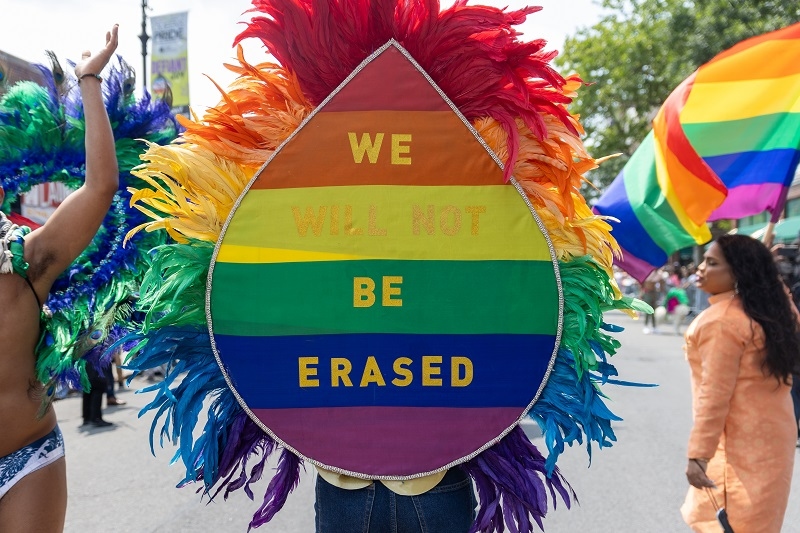Mexico's March to Marriage Equality: Same-Sex Marriage

The landscape of same-sex marriage in Mexico has undergone a significant transformation, culminating in its nationwide legal recognition by the end of 2022. This journey reflects a broader shift in societal attitudes and legal interpretations regarding LGBT rights in the country.
Legal Recognition and Performance of Same-Sex Marriages
As of December 31, 2022, same-sex marriage is legally recognized and performed throughout Mexico. This milestone marks a pivotal shift from a patchwork of regional laws to a unified national stance on marriage equality.
Legal Status and Supreme Court Rulings
The Supreme Court's Role
The Supreme Court of Justice of the Nation has played a crucial role in advancing same-sex marriage rights in Mexico. Its decisions have been instrumental in shaping the legal landscape, ensuring that same-sex marriages are recognized and respected across the nation.
Landmark Rulings of 2010 and 2015
Two significant rulings, in 2010 and 2015, were pivotal. The 2010 ruling mandated that all states must recognize same-sex marriages performed anywhere in Mexico. The 2015 decision further reinforced this by declaring state bans on same-sex marriage unconstitutional, aligning state laws with the federal constitution.
State Laws vs. Federal Constitution
These rulings highlighted a tension between state laws and the federal constitution, ultimately leading to a harmonization of laws in favor of marriage equality.
State-by-State Legalization
Diverse Approaches to Legalization
Each Mexican state approached the legalization of same-sex marriage differently, reflecting a diverse range of political and social climates. By the end of 2022, all states had legalized same-sex marriage, either through legislation, executive action, or Supreme Court orders.
Variations in Marital Rights
Despite nationwide legalization, disparities in marital rights, especially concerning adoption, persist. While some states fully recognize the rights of same-sex married couples, others have yet to extend these rights fully.
Civil Unions
In addition to marriage, several states offer same-sex civil unions, providing legal recognition though not always equal to marriage.
Historical Perspective
From Civil Union Law to Nationwide Legalization
The journey began in Mexico City with the introduction of a civil union law in 2006. This progressive step laid the groundwork for the eventual nationwide legalization of same-sex marriage. Additionally, exploring bisexual women's experiences provides further insight into the diverse narratives within the LGBTQ community during this transformative period.
Political and Social Influences
The path to legalization was shaped by various political and social factors, including advocacy by LGBT groups, changing public opinion, and support from certain political parties.
Key Milestones
Significant dates and events mark the history of same-sex marriage in Mexico, from the early civil union law to the landmark Supreme Court rulings and eventual nationwide acceptance.
Constitutional and Legal Framework
The Mexican Constitution and Same-Sex Marriage
The Mexican Constitution, while not explicitly addressing same-sex marriage, has been interpreted to support marriage equality based on principles of non-discrimination and equality.
Influence of International Decisions
International legal decisions and anti-discrimination laws have also played a role in shaping Mexican rulings, reinforcing the notion that marriage equality is a fundamental human right.
Impact of Supreme Court Decisions
Effects on State Laws
The Supreme Court of Justice of the Nation's rulings profoundly impacted state laws regarding same-sex marriage in Mexico. The 2010 and 2015 decisions were particularly influential, mandating nationwide recognition of same-sex marriages and declaring state bans unconstitutional. These rulings effectively harmonized state laws with the federal constitution, ensuring that same-sex couples enjoyed equal marriage rights across the country.
Marriage Equality through Court Injunctions (Amparos)
The process of obtaining marriage equality often involved court injunctions, known as 'amparos'. This legal mechanism allowed same-sex couples to challenge discriminatory laws, leading to individualized rulings that gradually paved the way for broader legislative changes. The amparo process, while time-consuming, played a crucial role in advancing marriage equality at both state and national levels.
Political and Social Movements
Role of Political Parties and LGBT Advocacy Groups
Political parties and LGBT advocacy groups were instrumental in the fight for marriage equality in Mexico. These organizations worked tirelessly to raise awareness, mobilize public support, and influence policymakers. Their efforts were crucial in shifting public opinion and garnering political backing for same-sex marriage. Understanding the LGBTQ Marriage Act is key to appreciating these groups' relentless pursuit of equality and justice.
Public Opinion and Resistance
While there was significant support for same-sex marriage, resistance persisted in some quarters. Opposition often stemmed from conservative groups and religious organizations. However, the growing acceptance of LGBT rights in broader society gradually diminished this resistance.
Influence of International Rulings
International rulings and human rights organizations also played a pivotal role. Decisions from bodies like the Inter-American Court of Human Rights set precedents that influenced Mexican jurisprudence, reinforcing the argument for marriage equality as a human right.
Future Outlook
Ongoing Challenges and Developments
Despite significant progress, challenges remain. Issues like adoption rights and the full recognition of marital rights in all states continue to be areas of concern. Future developments in same-sex marriage laws will likely focus on addressing these disparities.
Role of Judiciary and Legislature
The judiciary and legislature will continue to play critical roles in upholding and advancing marriage equality. Their actions will be essential in ensuring that legal protections for same-sex couples are not only maintained but also strengthened.
You may also like: A Comprehensive Guide To Same-sex Marriage In The US
Conclusion
As of now, same-sex marriage is legal across Mexico, representing a monumental shift in the country's approach to LGBT rights. The journey to this point reflects significant social and legal advancements. The collective efforts of the judiciary, political parties, advocacy groups, and society at large have contributed to a more inclusive and equitable Mexico, setting a precedent for other nations grappling with similar issues.
This content was created by AI























